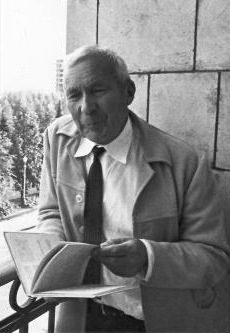
ID theory depends on probability questions, in the end. So this Nautilus article on Andrei Kolmogorov, who pioneered probability theory, should be of considerable interest:
For Kolmogorov, his ideas neither eliminated chance, nor affirmed a fundamental uncertainty about our world; they simply provided a rigorous language to talk about what cannot be known for certain. The notion of “absolute randomness” made no more sense than “absolute determinism,” he once remarked, concluding, “We can’t have positive knowledge of the existence of the unknowable.” Thanks to Kolmogorov, though, we can explain when and why we don’t.
…
But Kolmogorov’s interests inclined him in more philosophical directions, too. Mathematics had led him to believe that the world was both driven by chance and fundamentally ordered according to the laws of probability.
Incidentally, he took part in Stalinist purges in order to gain the freedom to continue his own work. This essay is a clear-eyed look by Slava Gerovitch, a lecturer on the history of mathematics at MIT at that aspect of things, the real story of science in unfree societies:
He had already displayed an apparent readiness to make political compromises for the sake of his career, accepting a position as a research institute director when his predecessor was imprisoned by the Bolshevik regime for supporting religious freedom.
So, an instructive read on several topics.